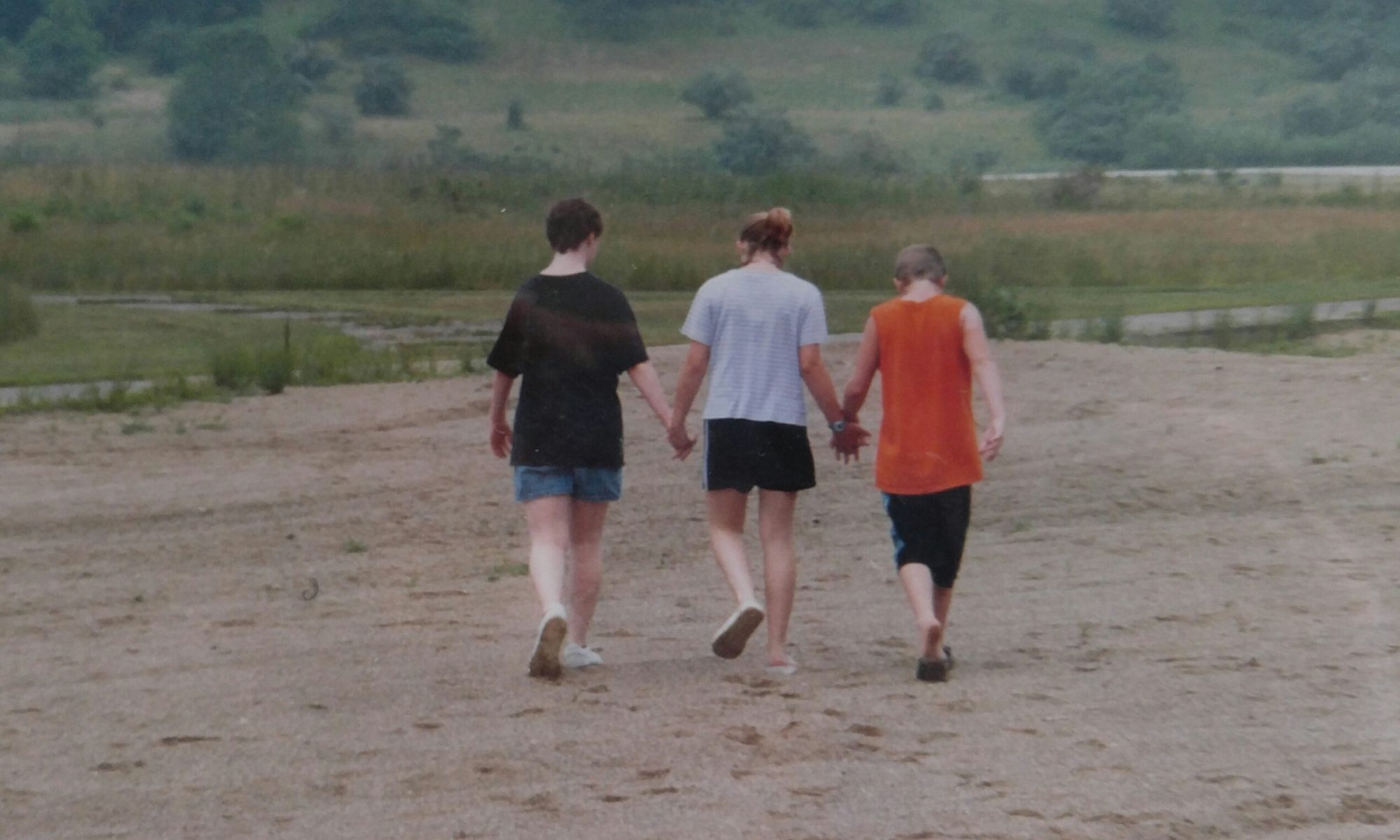
A few weeks ago, I got a call that no parent or grandparent wants to get. The baby that we had been dreaming for and talking about for six months had passed away. Rob hadn’t fully gotten the idea that a baby was coming at Christmas, while Casey was very much looking forward to being an “auntie” and to the baby shower that was planned. I am still struggling at times to believe that my grandson is truly gone.
The first few days after the call were the worst. Rob was scared that Mandy and Cory were in heaven, too, while Casey couldn’t understand why I was crying when Heaven is such a happy place to be in. She also thought that only old people went to Heaven – she never knew that a baby could go, too. The more I cried, the more upset they became, so I struggled to hide my tears from them – to be strong and make sure they understood that Mandy and Cory were okay and that they were safe.
Rob asked if I was sick. Casey wanted to know if she could be an auntie another day. Rob wanted to see Mandy and Cory. Casey wanted to talk about the baby in the only way she could – by telling me everyone else who is Heaven. I listened and assured both of them that I was okay, just sad – that everyone was just very sad and that it was okay for us to cry.
For people with autism, it can be very hard to understand emotions – especially strong ones like grief. They may react in ways that most people believe are inappropriate, such as giggling or smiling. Casey will do this at times when someone is sad or mad. She gets nervous and laughs. If this happens to someone you know, it’s best to not react to it. They can’t help being nervous and if you call attention to it, the nervousness will only get worse.
If you have to tell someone with autism about a person passing away, be sure you know what you believe before you tell them. Our family believes in God and Heaven and I share that with Casey and Rob all the time. They don’t understand why no one who goes to Heaven comes back – they believe it’s a real place, like to visit on vacation. When I had to tell them the baby was gone, I told them he went to Heaven and that I was sad because I missed him.
Please don’t use phrases to avoid saying someone had died. Never say a person “went to sleep” and isn’t coming back. You are just asking for trouble – your child may never sleep because of the fear they will go away and not come back. And don’t avoid telling your child someone has passed away. Your child will notice the absence and may start to believe they were bad, so the other person has decided not to visit them. It seems silly to us, but to someone with communication issues, it may seem perfectly reasonable.
Have an honest talk with your child, even if the discussion is just you talking. Your child understands more than you know. It won’t be an easy talk to have. Let yourself cry if you need to. It’s okay for your child to see you upset. Be ready for some anxiety on their part. Maybe questions. Maybe tears. Remember that grief hits people differently and whatever reaction they have is okay. Remember to take care of yourself, too, and allow yourself to grieve.
Hug your family tighter. Tell everyone you care about that you love them.


